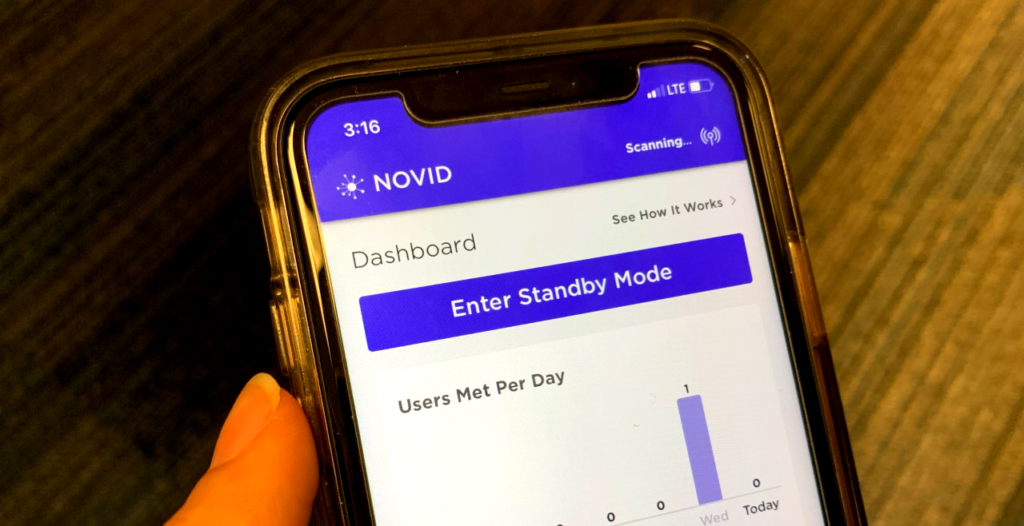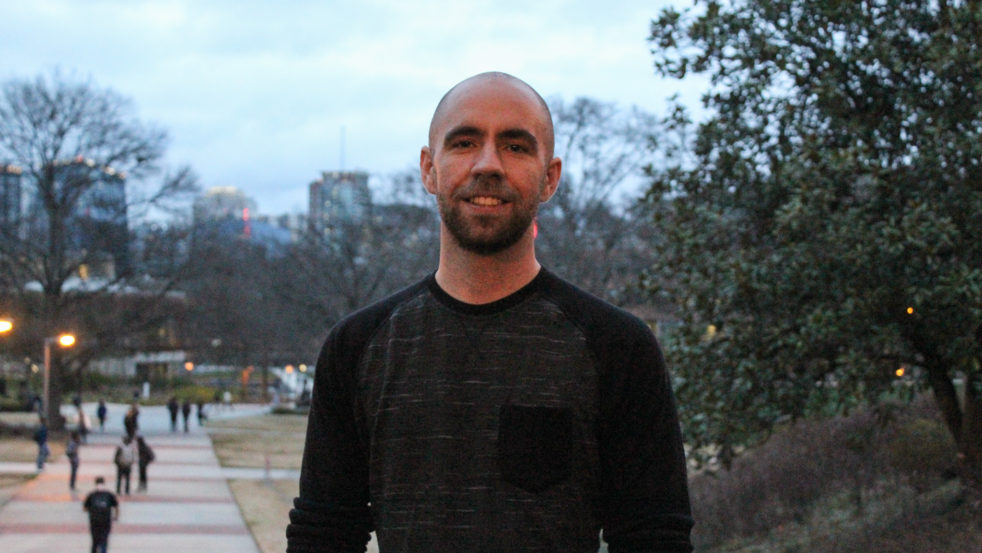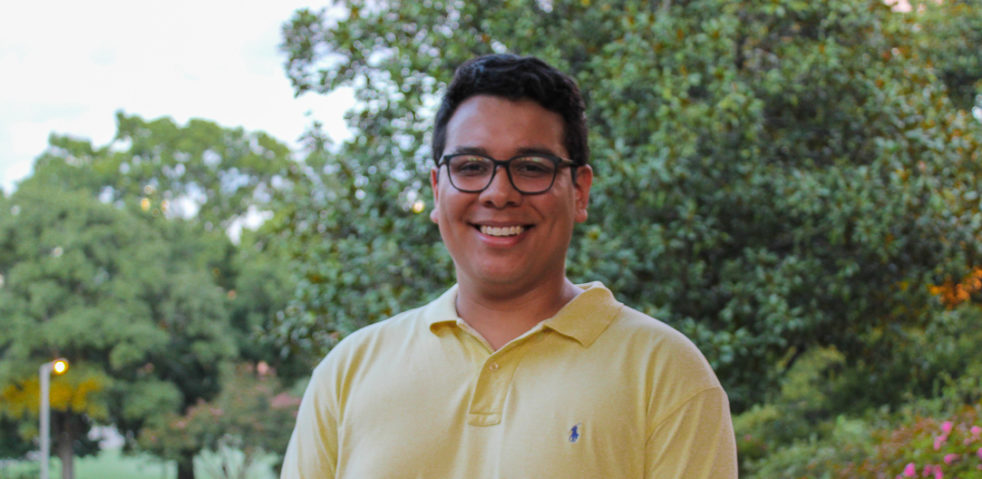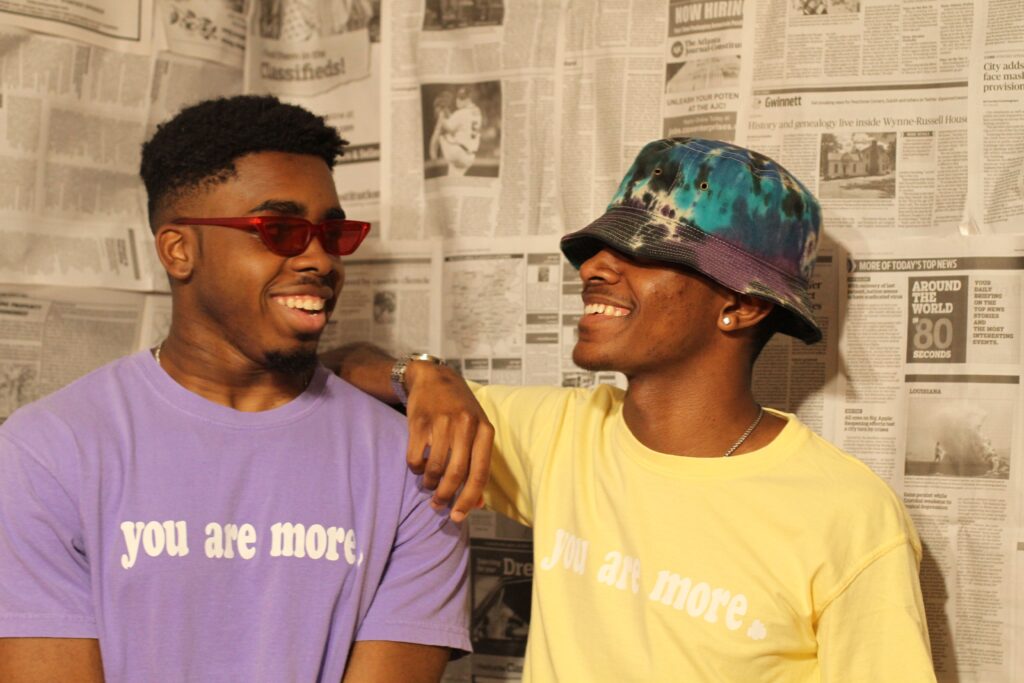Posted on 02 July 2020.

As the Tech community continues to adjust to classes, work, research and other activities virtually, one member of the Tech community is bringing in new ideas to support students, staff and faculty.
Tegra Myanna (they/them/theirs) began working as the director of the LGBTQIA Resource Center on May 11 and since then, has been developing virtual resources and planning for the future. Before starting at Tech, Myanna worked on other college campuses for about a decade. After graduating from the University of Nebraska-Lincoln for both their undergraduate and graduate degrees, Myanna was offered a position as a hall director at Carleton College, a private liberal arts college in Northfield, Minn.
“The position that I had had collateral assignments, and so I did a year as the academic skills coach for students and so I helped students, did time management workshops, study skill workshops,” said Myanna.
After their second year, Myanna was offered another assignment with the Gender and Sexuality Center to serve as the LGBT advisor and was eventually offered the assistant director position of the center.
“The Gender and Sexuality Center differs a little bit from the work that I do now, in that it was holistic sexuality,” said Myanna. “We were the Women’s Resource Center, the LGBT Center, we did sexual violence prevention, healthy relationships workshops and work, and then also survivor support.”
After four years, Myanna began working at Macalester College, a private liberal arts college in St. Paul, Minn. and served as the assistant director of the Lealtad-Suzuki Center, which focuses on multicultural education. While at Macalester, Myanna ran LGBT initiatives and oversaw intentional living spaces for Indigneous students, students of color, and transgender and non-binary students.
“We have two intentional living spaces based on identity, and then I also oversaw a dialogue program that had 15 different dialogue groups around either a certain identity or the intersections of identity,” said Myanna.
Now at Tech, Myanna already has numerous ideas for possible projects in the future, such as an LGBTQIA+ based mentorship program.
“I think that they provide a really great avenue for support for students who are figuring out identity or kind of wondering how to navigate their identity in a specific career or major field,” said Myanna.
Another area of interest for Myanna is strengthening contact with the graduate student community and evaluating graduate needs.
Myanna will also be working to continue support for women, Black and Latinx students, both through partnerships with Greek and Black student organizations, as well as work with the Institute Commitment to Diversity, Equity, and Inclusion to support students at these intersections of identity.
Focusing on the present, Myanna’s start at Tech during online campus operations has posed numerous challenges.
“It’s been really challenging to try and connect with students and to hear what their experiences at Tech have been or what they would like me to focus on or for the center to focus on,” said Myanna.
Myanna believes being new to the Tech community may create some temporary challenges in meeting the student body.
“I also am not an established person in our presence in the Tech community, and so I think that barrier for students to reach out to me if they don’t have a specific ask or have a specific need, I think it’s probably pretty high,” said Myanna, who hopes over time, this will change.
Myanna points out that there may also be some benefits to using technology as a means of communication.
“I think in some ways, it’s about reaching a wider range of students and it allows us to do that,” said Myanna. “In LGBT work, I think it also allows us to maybe reach students who wouldn’t want to physically show up in our space.”
Communicating virtually allows for more anonymity.
“I can join in a BlueJeans call and not have my video shown,” said Myanna. “I can go into a BlueJeans call and maybe change my name to like a nickname that’s not as noticeable as to who I am. I think that there are ways that we can create virtual spaces that feel maybe a little bit comfortable for those who maybe aren’t out on campus, maybe don’t even know if they fully want to be part of the queer community or if that’s how they identify.”
Additionally, Myanna points out that virtual communication helps to lessen the chances of passing or contracting the COVID-19 virus. For now, the LGBTQIA Resource Center is providing online resources for students to use until on-campus operations resume. Both Myanna and Camilla Brewer, the LGBTQIA Resource Center’s coordinator, offer weekly office hours in which students or staff can drop in and have a conversation. Besides office hours, Myanna and Brewer hosted two town halls to engage with the community.
“The town halls … are opportunities for me to meet the larger Tech community, and so we’re going to do one for faculty and staff and one for students,” said Myanna.
The student town halls will took place on June 23, the faculty and staff meeting was on June 16.
“The student one will be a chance for both Camilla and I to introduce ourselves, in case there are students who join in on the town hall, either out of curiosity or interest, maybe they’re new to Tech, maybe they’re new to an LGBT identity and so they haven’t interacted with the center much, … sharing a little bit about who we are, sharing about our office and the resources and programming that we have planned for the fall,” said Myanna.
For a smaller setting, the Resource Center offers monthly Netflix Watch Parties in which students can watch a movie and have a dialogue in a chat box alongside.
“The Netflix Parties will be fully open to anyone in the Tech community,” said Myanna. “We’re obviously centering LGBT students in the LGBT experience in the films that we choose, but anyone who wants to stop in and watch a film together can.”
For more chances to connect with students and staff, the Resource Center hosts Virtual Queer Dessert Hours.
“There’s one every other week through the summer, and they all center a different area of queer community,” said Myanna, who explains they are used as an in-house community building activity.
To commemorate the 50th Anniversary of Pride and the Stonewall Riots, the LGBTQIA Resource Center will be hosting a Queer Liberation Art Crawl.
“We are asking anyone in the Tech community, so this is students, faculty, staff, alum, to create some piece of art, it can be a video, it can be a drawing, it can be a poem, anything that you want, any type of expression you want, that represents what queer liberation means to you,” said Myanna.
Participants can share their artwork on Instagram or Facebook, tag the LGBTQIA Resource Center and it will be featured on the LGBTQIA Resource Center’s page on June 29.
Finally, several workshops will be offered this summer, including a discussion on topics such as LGBTQIA Self Care and Queerness and Fatness. Moving forward, Myanna and staff at the LGBTQIA Resource Center are working to determine how in-person activities can safely be held.
“Something we’re trying to figure out is, is there a way to do this in-person that still abides by whatever kind of policies or practices are in place when we return to campus?” said Myanna, who points out that large events such as the welcome back reception could be challenging to host.
Although the future may be uncertain, Myanna emphasizes that no matter what, they hope to connect with the entire Tech community.
“If a student as an individual or a group that they’re a part of feels like, they just want to learn more, maybe they have a question that they don’t know exactly who to ask of, or if they’re looking for a collaboration, either programmatically or through a training, feel free to reach out,” said Myanna. “I’m really interested in getting to know the Tech community and Tech students and the work that students are doing because I hear that it’s really incredible.”
To learn more about the virtual resources available to the Tech community, dates and links can be found at lgbtqia.gatech.edu/virtual-resources.







